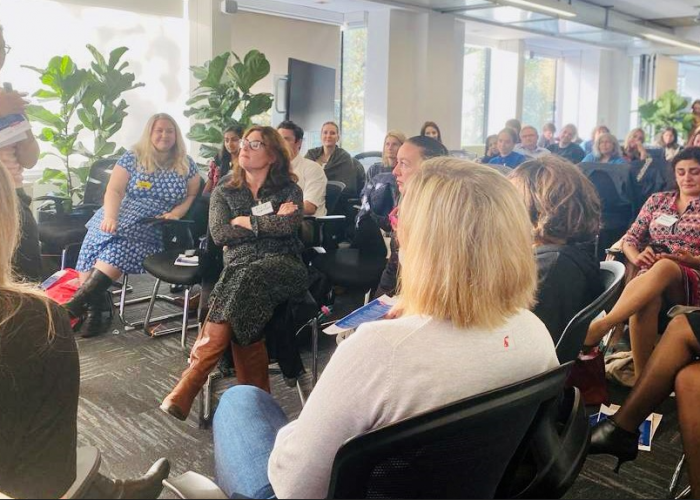Imperial College Health Partners (ICHP) are pleased to announce a new initiative aimed at raising the awareness of Human Factors for staff working in Maternity services across North West London.
 Jo Keating, Innovation Delivery Manager, shares her work on driving this new initiative forward and her passion for Human Factors:
Jo Keating, Innovation Delivery Manager, shares her work on driving this new initiative forward and her passion for Human Factors:
“All healthcare workers are human and by nature humans make mistakes”.
NHS care is consistently of a high standard, however, there are a relatively small percentage of failures in these standards which can lead to devastating consequences for patients, staff and the public alike. The role of Human Factors is widely cited as a contributing factor in such failures.
Clinical Human Factors describes ‘the effects of teamwork, tasks, equipment, workspace, culture, organisation and individual characteristics on human behaviour and abilities and the application of that knowledge in clinical settings (National Quality Board, March 2012)’.
It is the awareness of the possibility of error keeps us intentionally alert when we are working in apparently risky situations. Staff who are aware of Human Factors are enabled to manage issues which can impact on the possibility of errors like: limited capacity of working memory, situational awareness, distractions, stress and fatigue. As such an understanding of Human Factors is closely aligned with quality improvement (National Quality Board, 2013)’.
Human Factors are frequently cited as contributory to clinical errors in high profile Maternity reports such as the MBRACE-UK confidential enquiry into Perinatal mortality and the Morecombe Bay report. Moreover, colleagues also empirically identify Human Factors as causal factors during the review of serious incidents. As such both; the Each Baby Counts report and The National Maternity Review, strongly advocate the need for staff training on Human Factors to raise awareness of the impact and support teams to recognise them.
My role at ICHP with this knowledge enabled me to led a North West (NW) London sector wide scoping exercise which highlighted specific interest from maternity services in developing a speciality specific Human Factors training programme.
Building on this, in February 2018, through our strong ICHP sector partnerships and collaborations, we brought together clinical colleagues representing all six maternity services in NW London. This led to an agreement to collaborate and develop a sector wide training faculty to deliver Human Factors training to maternity service staff across the sector.
I have since driven this work forward and lead on the design and facilitation of three workshops for colleagues to review practice in other areas and design the delivery model and evaluation strategy to develop this sector wide training delivery model. This will see nearly 40 multidisciplinary staff, a mix of anaesthetists, obstetricians, neonatologists and midwives, developed as training faculty to support a long term, sustainable solution.
Through our continued development and vision for the faculty we aim to begin delivery of training in winter 2018 which will train many more staff in NWL London raising awareness and the role that human factors have in everyday care.



